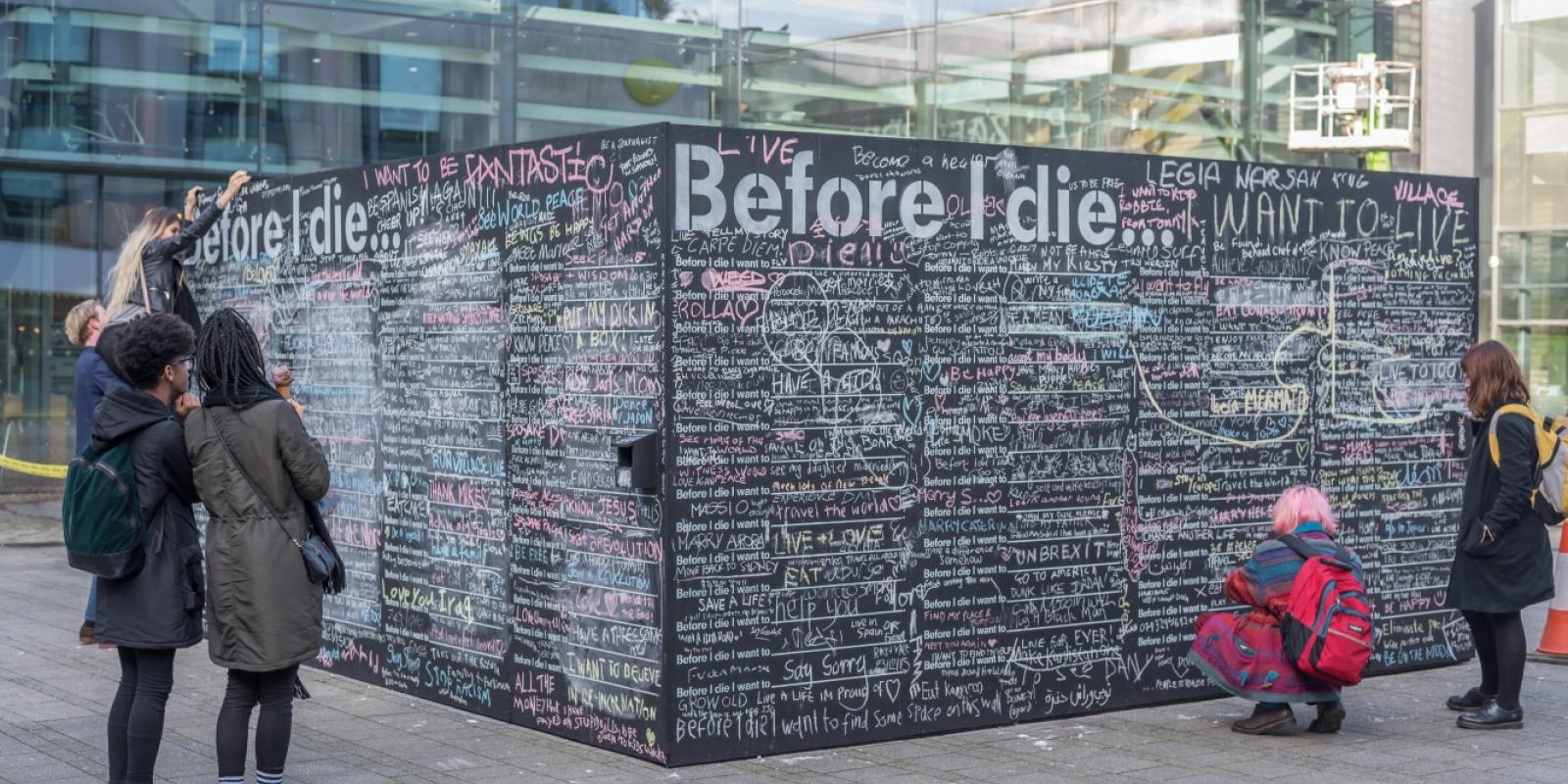Even in the presumably progressive aging sector, there is often an attempt to concentrate on the positive, and avoid the decline narrative, which can, however, eventually happen to anyone. Talk of death and dying is more common out of necessity but still not as frank nor as open as one might expect.
This Fall Generations Journal issue, so skillfully guest-edited by Carole Fisher (with assistance from National Partnership for Healthcare and Hospice Innovation’s Rachel Jordan), does not share in that hesitancy to address a topic of foremost importance head on. Fisher has curated an emotionally intelligent and illuminating set of articles, covering everything from the potential of psychedelics to end-of-life-doulas to faith at the end of life to a philosophical look at how we die.
Fisher was able to secure these viewpoints because she has been working in hospice for almost two decades—currently as president of the National Partnership for Healthcare and Hospice Innovation (NPHI), a membership organization wherein she supports nearly 100 nonprofit, community integrated, hospice and palliative care providers.
“Every day, I am moved by our members’ work to fundamentally change how people think about and experience the final stages of life,” says Fisher. “I’m astounded by the unwavering commitment of my colleagues across the country to help people die well. Their work fuels my passion and personal commitment to these critical issues.”
‘I’m astounded by the unwavering commitment of my colleagues across the country to help people die well.’
In an earlier phase in her career, Fisher spent time as a licensed substance abuse counselor and notes in her introduction that she learned how often grief and loss can be underlying symptoms of larger mental health issues. She also feels such grief and loss during the pandemic have contributed immensely to our current mental health crisis.
As executive director at Bridge Counseling Associates, Fisher remembers hearing about the great work that was happening at Nathan Adelson Hospice and wishing she had an opportunity to be part of that team. Twenty years later, she was president and CEO of Nathan Adelson Hospice.
“Everything I experienced until that point helped prepare me for that remarkable role,” she says now. “During my time with Nathan Adelson Hospice, we cared for over 50,000 patients and supported their families through what was often the most challenging time of their lives.” Taking care of employees also was part of that work, and the organization was recognized for eight years running by Modern Healthcare as one of the 100 Best Places to Work in the country.
In 2021, while the pandemic continued to rage, Fisher was offered the presidency at NPHI, which is described as the national voice for nonprofit hospice and palliative care providers who care for more than 100,000 people facing advanced illness and their families every day. NPHI has been an advocate for ensuring the best care for the sickest, most vulnerable patients, which is possible through nonprofit hospice and palliative care organizations acting as safety net providers. During the pandemic, NPHI announced collaborations that will improve cardiac care at home, mental health support of healthcare workers, and steps to address health disparities.
‘I hope readers take away that death and grief are not an exact science.’
“Any way we can open up the conversation around death, dying, and grief is significant,” Fisher says. For years she has seen people avoiding the conversation—in her own family, among friends, and with other healthcare providers. But she has faith that, someday, “we can get to a place where individuals are dying well, and in alignment with their unique wishes—if we begin to have these admittedly uncomfortable, but essential conversations.”
“My wish is that this issue of Generations Journal furthers the conversation and helps to facilitate discussions about the various aspects of death and dying. More importantly, I hope readers take away that death and grief are not an exact science but instead manifest in entirely different ways for different people,” says Fisher.
Fisher purposefully included a range of perspectives in this issue, such as the role of faith-based communities, the issue of disenfranchised grief, and the effects of social determinants of health on the grieving process.
She also wished to give voice to those who are dying and those who are grieving their death, borrowing a vision of the future from Dame Cicely Saunders, a pioneer of the modern hospice movement, who said, “You matter because you are you and you matter to the end of your life. We will do all we can not only to help you die peacefully, but also to live until you die.”
Fisher hopes everyone now and into the future will have all the supports necessary to live well until they die and to experience the end of their life in a way that respects their goals, values, and preferences.
Quoting Saunders, she adds: “How people die remains in the memory of those who live on,” which, Fisher says, “exemplifies the importance of understanding and supporting those who are grieving the loss of a loved one.”
Alison Biggar is ASA’s Editorial Director.













